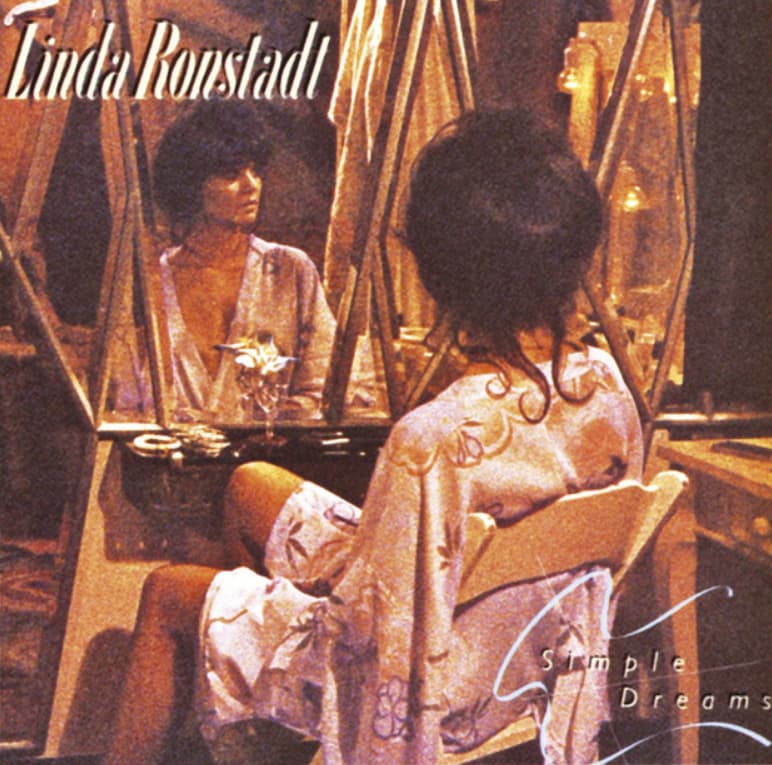
A Satirical Look at Romantic Misfortune
The Queen of ’70s Soft Rock Finds Humor in Heartbreak
There are certain songs that, the moment the needle drops or the opening guitar riff floats through the air, instantly transport you back to a specific time, a feeling, a moment in youth. For many who came of age during the sun-drenched, introspective era of 1970s soft rock, Linda Ronstadt’s rendition of “Poor Poor Pitiful Me” is undoubtedly one of those anthems. It’s a track that embodies the spirit of an age defined by its blend of California cool, confessional songwriting, and a burgeoning sense of female empowerment, albeit one wrapped in a deliciously dark layer of self-deprecating humor.
This song, which became one of the signature hits from Ronstadt’s breakthrough 1977 album, Simple Dreams, is an exquisite example of how an artist can take a compelling piece of existing material and, through the sheer force of their interpretive skill and vocal delivery, completely make it their own. It’s important to remember that “Poor Poor Pitiful Me” was not originally a Linda Ronstadt composition. It was first penned and released by the great singer-songwriter Warren Zevon on his 1976 self-titled album. Zevon’s version was raw, mordant, and full of his characteristic cynical wit. Ronstadt, however, took that foundation and polished it, giving it a sheen of commercial viability and a vocal vulnerability that made the satire sting just right.
The impact of this track on her career and on the charts was undeniable. The album it anchored, Simple Dreams, was a colossal success, becoming one of her highest-selling records. While “Poor Poor Pitiful Me” itself was not a primary single (that honor went to the title track, “Blue Bayou,” and “Tumbling Dice”), its airplay was significant. It became a beloved album track and a radio staple, contributing immensely to the album’s dominance. The album, Simple Dreams, peaked at Number 1 on the Billboard 200 chart and spent five weeks atop the list, a testament to the collective power of its songs, with “Poor Poor Pitiful Me” playing a crucial, fan-favorite role.
At its heart, the song is a brilliant, satirical lament. It tells the story of a woman whose string of bad luck in relationships is comically, almost violently, catastrophic. She sings of being used, abused, and ultimately mistreated by a succession of self-centered men, running the gamut from a man who “kicked me in the head” to another who “run off and left me.” The meaning is less about genuine victimhood and far more about a theatrical, hyperbolic expression of romantic frustration. It’s the sound of someone surveying the wreck of their love life and deciding to laugh—a dark, knowing laugh—rather than cry. It’s an embrace of the absurdities of dating, a wink at the listener that says, “We’ve all been there.” The song’s power, especially for older generations, lies in this recognition. It’s a relatable tale told with an exaggerated flourish, capturing the dramatic emotional highs and lows of young adulthood.
Ronstadt’s vocal performance is what solidifies the song’s place in the pantheon of ’70s rock. She delivers the lines with a perfect mix of irony and weary resignation. Her voice, always a marvel of clarity and emotional depth, injects the song with a warmth that makes the self-pitying title sound almost endearing. She softens the edges of Zevon’s sharper cynicism, transforming a hard-rocking complaint into a radio-friendly sing-along. It’s an aural encapsulation of driving down a dusty highway at sunset, windows down, singing along to your own romantic misadventures with a wry smile. Decades later, the track remains a bittersweet reminder of a time when the biggest sorrows of life often seemed to be fixable, or at least fodder for a great, unforgettable song.